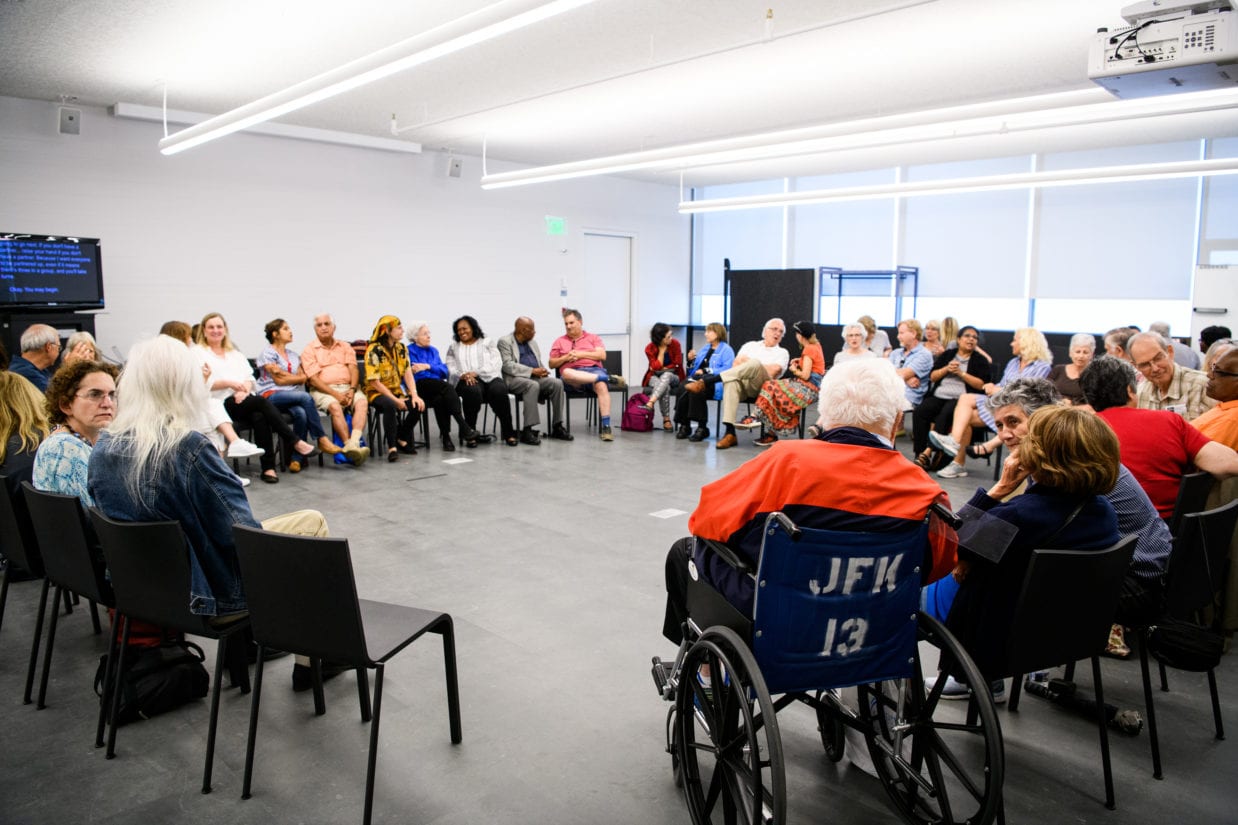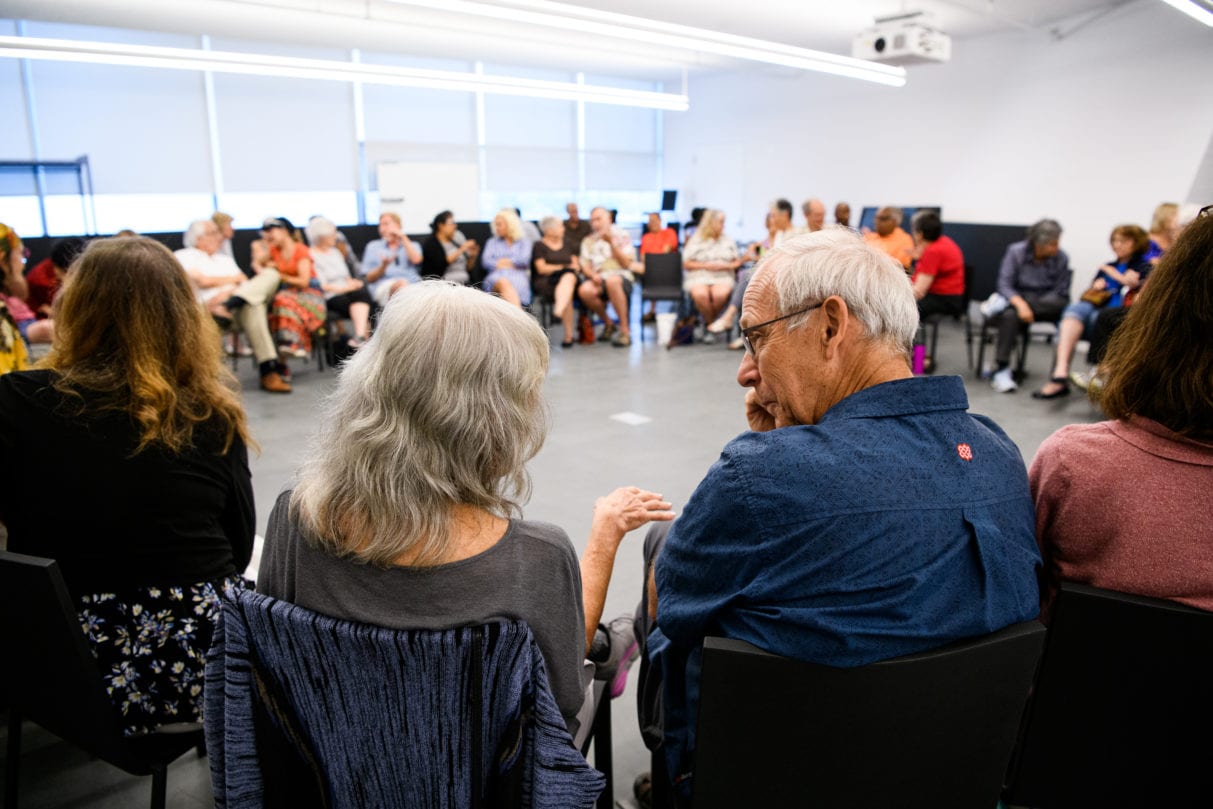More than 50 seniors crowded into a storytelling circle inside one of the Kennedy Center’s new REACH buildings on Monday, and I, as a card-carrying member of the reduced-fare generation, squeezed in with them.

I joined the group thinking it might be a way to resurrect the bubba meiser—or “grandmother’s tale”—that kept earlier generations in line, teaching them the family history while instilling the moral code of the day. (In those stories, wayward children invariably faced ruin, while good kids won the equivalent of the lottery or—just as good—a rich husband or wife whose parents would actually pay your college tuition.)
Luckily, Candace Wolf, who conducted the session, had a different approach. Instead of using stories for educational purposes (or behavior modification, as the case may be), she guided the group toward the use of memory as a language, and as a means of connecting to each other.
“Storytelling,” she told the class, “is the most basic form of communication. Like oxygen, we need it to survive.” But storytelling cannot exist, she added, without a listener for every teller.
She began with the “name game”—a classic icebreaker often used at professional meetings—and told each participant to turn to someone sitting nearby and tell a story about his or her name.
Under Wolf’s direction, the stories went beyond names, exploring other, often unrelated, topics. (In my case, the derivation of my name led to a discussion about the French composer, Maurice Ravel, whose Bolero—and the mistress who inspired it—were considered scandalous at the time.)
Asked to describe an experience that changed the storyteller’s life, my partner—named for Richard the Lionheart—told of being a 17-year-old student in an archeology class at the University of Delaware. A pretty girl in the group asked for his help digging sand.

One thing led to another—both liked Maryland crab and coke—and they ended up spending the next 47 years together. When she died, the Lionheart said, he was not sad, since they had so much joy together, traveling to archeological sites and producing three fine daughters.
Other stories from around the room involved travel to Romania, growing up in Philadelphia and serving simultaneously as lawyers in the foreign Bar without ever having met each other.
Wolf, who is a Storyteller-in-Residence at the Kennedy Center and an accomplished oral historian, teaches people of all ages how to convert memories into entertainment and art.
“Inter-generational storytelling is my passion,” she said.
At the Kennedy Center, she looks for meaningful programs that can bring the old and the young together to share life histories. One of the most successful of these is an after-school workshop called Senior-to-Senior. As its name suggests, it allows high school seniors and the over-65 set to exchange stories and then recreate them through the dramatic arts.
“The shortest distance between any two people is a story,” said Wolf, who is the author of a collection of stories she learned from various non-literate people, including the Roma in Europe, the Mayans in Mexico, farmers in Asia and coal miners in Appalachia.
One of the most interesting things about the REACH session was the fact that the stories got better with each retelling.
Each time one of the listeners reported to the group, he or she—unconsciously perhaps—added details that heightened the drama, and subtracted the bits that didn’t add anything. In a sense, it was verbal editing. It reminded me of the “telephone game” or—as one of my colleagues pointed out—a form of improvisational theater.
And theater is, in fact, what it was, though the traditional roles were reversed. The audience played the leading parts, while the leader served as both director and audience.
Certainly, this session is a clear evocation of what a 21st-century arts center should be. In the words of Deborah F. Rutter, President of the Kennedy Center, it is “…inclusive, accessible and interactive.” It’s also fun.
Running Time: 60 minutes with no intermission.
Storytelling for Seniors with Candace Wolf ran for one performance only at The REACH Opening Festival, which runs through September 22, 2019, at The John F. Kennedy Center for the Performing Arts, 2700 F Street NW, Washington, DC. The complete schedule is here. Free timed passes are available at the box office, by phone at (202) 467-4600, or online.




